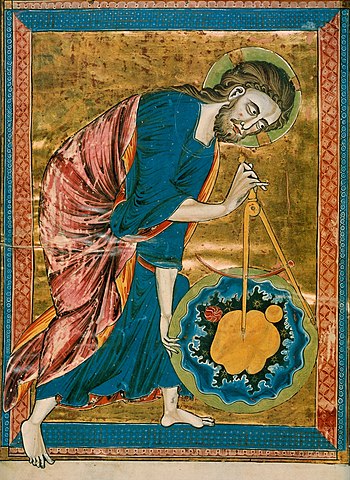
Catch yourself up on part 1 of the three-part series “science and religion.”
Questioning assumptions is a practice that can benefit people of faith — whether that faith is invoked in the name of religion or in the name of science, according to philosophy professor Dr. Jeffrey Kasser.
“People of faith need to own up to the fact that faith means you don’t have a really good argument. This doesn’t mean you can’t believe it, but it means you owe it to yourself to get very clear on why you believe it, and that you shouldn’t expect other people to come to the same conclusion,” Kasser said. “It’s not a license to make (things) up — if that’s what it were, it wouldn’t be worth having.”
Some religious people may believe whatever they’re told, but Kasser said this does not say much about religion itself. He points out that even scientific claims rest on assumptions that are not being controlled.
“Science rests on claims that it needs but can’t establish, because you can’t argue for everything all at once,” Kasser said.
Dr. Patricia Bedinger, professor in the biology department, said that a lot of students in her introduction to biology classes have not been taught evolution in high school because their teachers were reluctant to talk about it.
“I find that there’s a lot of curiosity, a lot of discomfort, because they come in with a set of ways they think about it,” Bedinger said.
Evolution is one of the more controversial discussion points between atheists and religious fundamentalists, along with other topics like global warming. Dr. Donald Mykles, biology professor and director of the CSU honors program, said that the extremes these two sides take in the public realm often makes conflict seem more pronounced than it is. He said that the atheists are not interested in listening to what religious people have to say, and fundamentalists are just as guilty.
“They take the strategy that if there’s only two arguments, and if you discredit one argument, then the other one must be true. That seems like a flawed way to justify a position,” Mykles said.
According to Mykles, science is not about finding absolutes.
Bedinger said she thinks that some scientists believe that based on the evidence, God does not exist. But, she says by nature everything is tentative in science, and that can make some people uncomfortable.
“Science doesn’t say anything about the existence of God,” Bedinger said.
There are those in the scientific community who see science as an unveiling of God’s plan — an affirmation rather than a justification of faith. Dr. Aaron Sholders, who teaches biochemistry, believes Christianity to be objectively true, and said he expects to see evidence in creation of the creation event.
“If we are to come to the correct interpretation of the Bible, I would say that the correct interpretation of science will perfectly match that,” Sholders said. “And, when there is a contradiction, then there must be something that would be misinterpreted on one end or the other.”
Mykles is quick to point out that there are definitely good things that come from religion. He adds that there are many questions in life that cannot —and should not— be answered by science.
“How did life actually start? We don’t know. That’s where I think religion can have some insight. But science is not the answer to everything. It works well within well defined boundaries and that is confining yourself to natural processes to explain the natural world.”
Mykles said that in science, there is always a degree of uncertainty. He thinks that this uncertainty is why many distrust scientific claims. He said that controversy is nothing new to science, but people need to better understand that the aims of science are not anti-religion.
“What are we afraid that we’re going to find out? That there is no God? I don’t see how that
can happen,” Mykles said.
See next the next article in the series for a feature on a religious scientist.
Collegian Science Beat Reporter Remi Boudreau can be reached at news@collegian.com.






